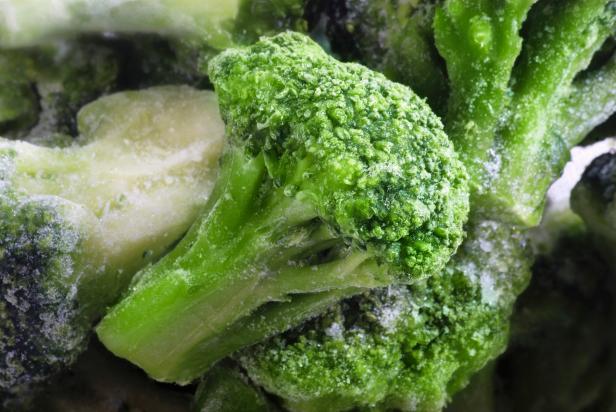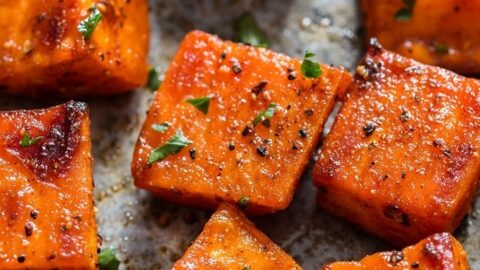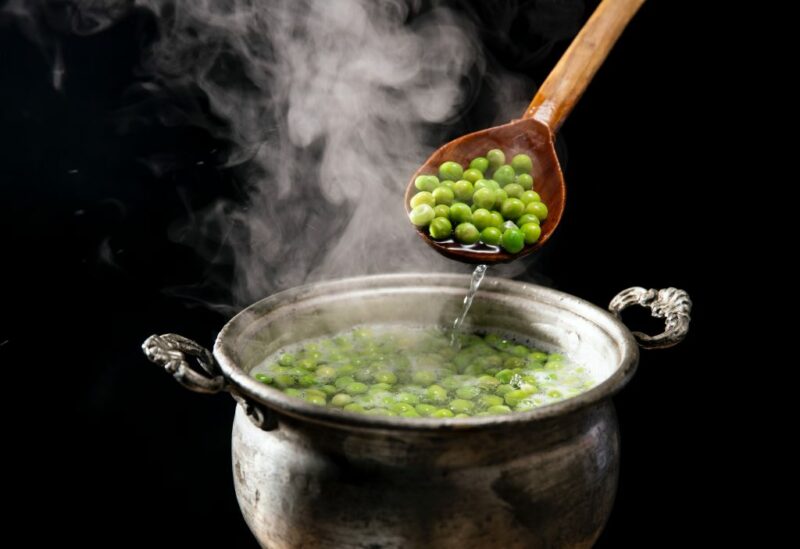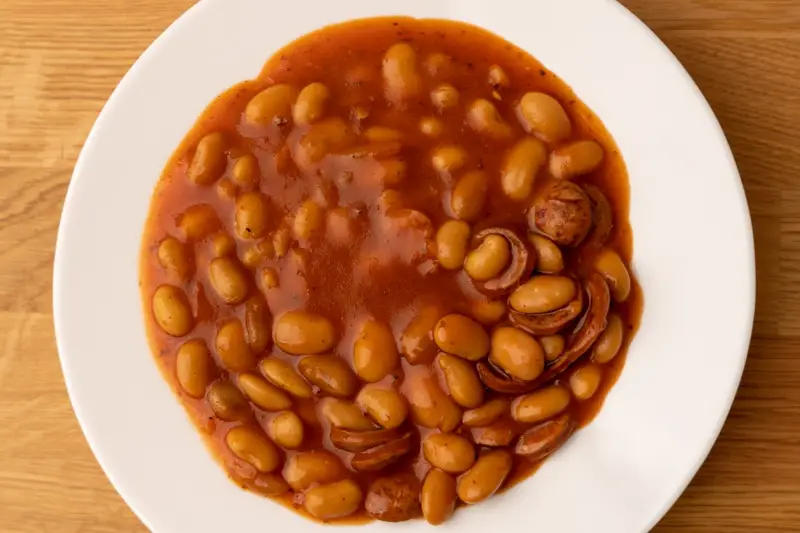Can You Eat Frozen Broccoli Without Cooking?
Introduction
Broccoli is a nutritious and delicious vegetable that is rich in vitamins A, C, and K as well as dietary fiber and antioxidants. It is a cruciferous vegetable and belongs to the same family as cauliflower, kale, and cabbage. Eating broccoli has numerous health benefits such as preventing cancer, supporting healthy digestion, boosting the immune system, and improving bone health.
There are different ways to prepare broccoli for consumption including steaming, roasting, boiling, stir-frying, and even eating it raw. However, some people may wonder if it is safe to eat frozen broccoli without cooking it. In this article, we will answer this question and explore everything you need to know about eating frozen broccoli.
What is Frozen Broccoli?
Frozen broccoli is simply fresh broccoli that has been cleaned, trimmed, blanched, and then flash-frozen to preserve its nutritional value. Blanching involves briefly boiling the broccoli before submerging it in ice water to stop the cooking process. This step improves its texture and color when frozen.
Store-bought frozen broccoli usually comes in bags or containers that are pre-measured for convenience. When ready for use, just take out the required amount from the freezer and cook as desired.
Frozen broccoli retains most of its nutrient content after freezing but can lose some essential nutrients such as vitamin C during the blanching process. However, since it is frozen immediately after harvesting when it is at its peak ripeness, it often has more nutrients than fresh broccoli that may have been sitting on store shelves for days.
Is Eating Raw Frozen Broccoli Safe?
While it is okay to eat fresh raw broccoli without cooking it, consuming frozen raw broccoli may not be safe. Raw vegetables are known to harbor harmful bacteria like E.coli and Salmonella, which can cause serious food poisoning.
Additionally, the freezing process may not always kill all the bacteria present in raw broccoli. Thus, it is recommended to cook frozen broccoli before consumption to kill any potential pathogens and make it safe for eating.
Fortunately, cooking frozen broccoli is easy and only takes a few steps to prepare it for consumption.
What Are the Benefits of Eating Frozen Broccoli?
Frozen broccoli is highly nutritious and provides many health benefits. Here are some of the reasons you should incorporate more frozen broccoli into your diet:
- It is high in fiber: Frozen broccoli is rich in dietary fiber, which promotes healthy digestion and helps prevent constipation.
- It supports immune health: The high vitamin C content in frozen broccoli supports a healthy immune system and helps prevent infections.
- It may reduce cancer risk: Cruciferous vegetables like broccoli contain compounds that have been shown to reduce the risk of cancer.
- It promotes bone health: The vitamin K content in frozen broccoli helps build strong bones and may also reduce the risk of osteoporosis.
- It helps to manage blood pressure: Frozen broccoli contains potassium, which is essential for regulating blood pressure levels.
Ways to Prepare Frozen Broccoli for Consumption
There are different ways to prepare frozen broccoli for consumption. Here are some popular methods:
Steaming
Steaming is a gentle method of cooking that preserves most of the nutrients in frozen broccoli. You can steam it using a steamer basket or other gadgets like an Instant Pot or microwave steamer. Place the frozen broccoli in a steamer basket over boiling water and steam for about five minutes or until tender.
Microwaving
Microwaving is a time-efficient method of cooking frozen broccoli. Place the frozen broccoli in a microwave-safe container with some water and cover with a lid or vented plastic wrap. Cook on high for 3-4 minutes, stirring occasionally until tender.
Boiling
Boiling frozen broccoli is another simple cooking method. Bring a pot of water to boil and add the frozen broccoli. Boil for about three minutes or until tender but still firm.
Stir-frying
Stir-frying is an excellent way to cook frozen broccoli with other vegetables or protein sources like chicken or tofu. Heat some oil in a wok or skillet and add the frozen broccoli and other ingredients. Stir fry for a few minutes until everything is cooked through.
Roasting
Roasting brings out the natural sweetness in frozen broccoli and gives it a crispy texture. Preheat your oven to 400°F and line a baking sheet with parchment paper. Toss the frozen broccoli with some olive oil, salt, pepper, and any other seasonings of your choice. Spread it evenly on the baking sheet and roast for 12-15 minutes or until golden brown.
Recipes Involving Frozen Broccoli
There are many recipe ideas that incorporate frozen broccoli as a primary ingredient such as:
Broccoli Soups
Broccoli soup is an easy and tasty way to consume frozen broccoli. Creamy broccoli soup involves sautéing onions, celery, garlic, and carrots in oil then adding the thawed broccoli to simmer with vegetable broth until soft, then pureeing it to a smooth consistency.
Casseroles with Broccoli
Broccoli casserole is another delicious dish that you can make using frozen broccoli as one of the main ingredients. Combine thawed diced chicken breasts or ground turkey, cooked rice, steamed broccoli and cream of mushroom soup in a baking dish. Sprinkle with shredded cheddar cheese and bake for 25-30 minutes.
Pasta Dishes with Broccoli
Frozen broccoli can be added to various pasta dishes like spaghetti, lasagna, or mac and cheese. Cook the pasta according to package instructions and add the thawed broccoli in the last few minutes of cooking.
How to Store Frozen Broccoli Properly
Storing frozen vegetables correctly ensures that they remain fresh and nutritious for a long time. Here are some storage tips:
- Keep them frozen at 0°F or below temperature.
- Do not refreeze frozen vegetables once thawed as this may compromise their quality.
- Avoid leaving the freezer open for too long as this can cause the vegetables to thaw partially or develop freezer burn.
- If you have excess fresh broccoli, blanch it in boiling water for two minutes, then drain and pack it in freezer-safe bags or containers. Label them and freeze properly.
Common Misconceptions about Frozen Vegetables
There are various misconceptions about frozen vegetables that have led many people to believe that they are less nutritious or taste inferior to fresh ones. However, research has shown that these beliefs are entirely unfounded.
Frozen broccoli has high nutritional value compared to fresh broccoli as it is picked at peak ripeness; whereas fresh produce may have been sitting on store shelves for days. Furthermore, modern freezing techniques preserve the taste and texture of frozen vegetables better than ever before.
Ideas for Incorporating Frozen Broccoli into Your Diet
Frozen broccoli can be added to different recipes to boost their nutrient content. Here are some creative ideas:
- Use chopped frozen broccoli as a topping on falafel or veggie burgers instead of lettuce to add crunchiness and nutritional value.
- Add thawed frozen broccoli to fried rice or other stir-fry dishes with other vegetables and protein sources.
- Create a veggie wrap with raw frozen broccoli, grated carrots, and hummus wrapped in a tortilla for a quick and nutritious lunch.
Conclusion
Frozen broccoli is a nutritious and delicious vegetable that can be enjoyed in various ways. Although it is not safe to consume raw frozen broccoli, it can be cooked easily using simple methods like steaming, microwaving, boiling, stir-frying, or roasting. When stored correctly, frozen broccoli retains most of its nutrient content and can add nutritional value to different recipes that you can make at home.
Frequently Asked Questions
#### Can I eat frozen broccoli straight from the freezer without cooking it?
Yes, you can eat frozen broccoli without cooking it after thawing it properly. However, frozen broccoli might not taste as good as fresh ones due to texture and flavor changes caused by the freezing process.
#### How should I thaw frozen broccoli before eating it?
It’s best to thaw your frozen broccoli in the refrigerator for a few hours or overnight in a sealed container or plastic bag. Alternatively, you can use the microwave defrost function for quicker results. Never leave your frozen broccoli at room temperature to defrost.
#### Can eating uncooked frozen broccoli be dangerous to my health?
Eating uncooked frozen broccoli is generally safe for healthy individuals if the broccoli has been stored properly and passed all safety regulations. However, there’s a risk of getting foodborne illnesses like salmonella and E.Coli if the product has been contaminated before being packed.
#### How long can I keep thawed or uncooked frozen broccoli in my fridge?
Once you have thawed your frozen broccoli, it’s best to eat it within 2-3 days. Alternatively, keep your uncooked frozen broccoli in a sealed container or plastic bag in the freezer for up to eight months. Ensure that you label and track how long it’s been stored in the freezer to avoid consuming expired food products.







